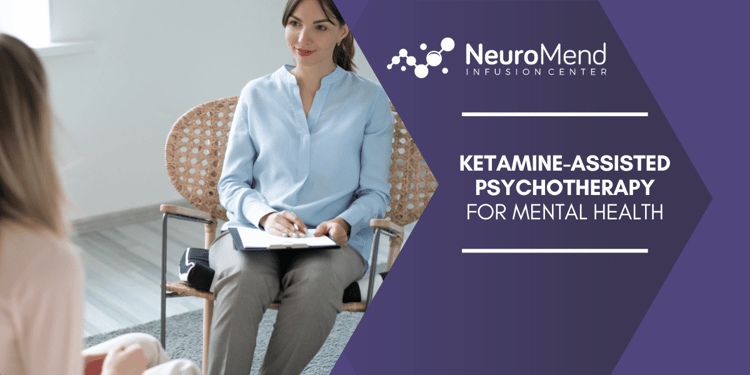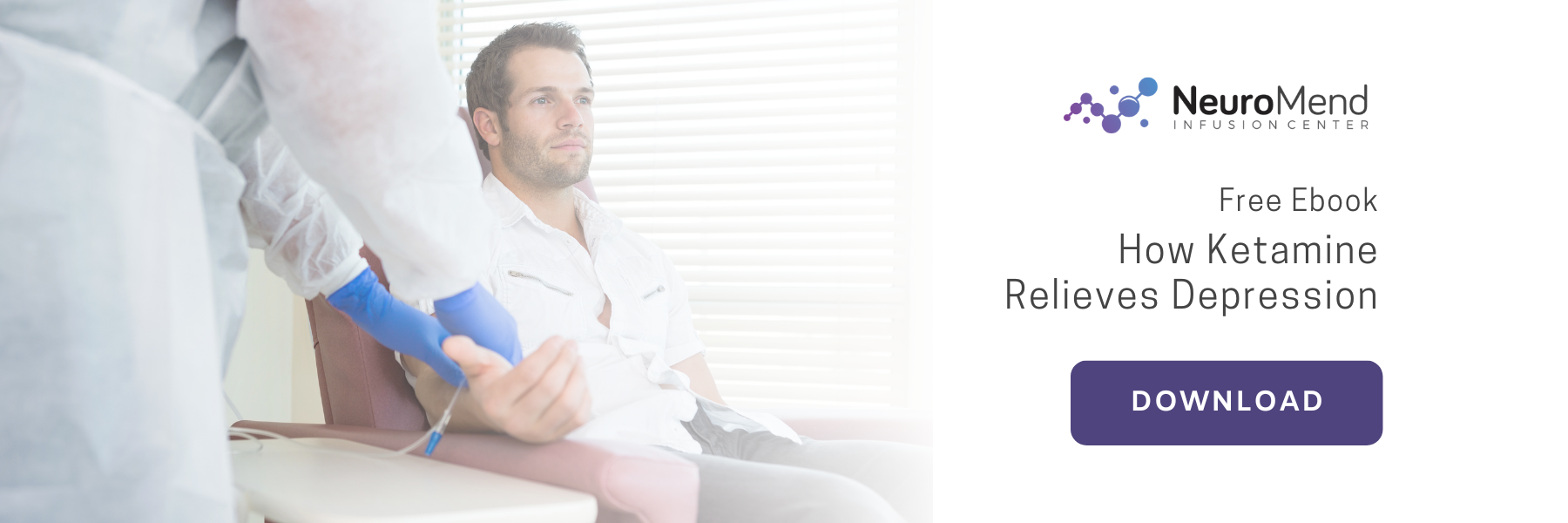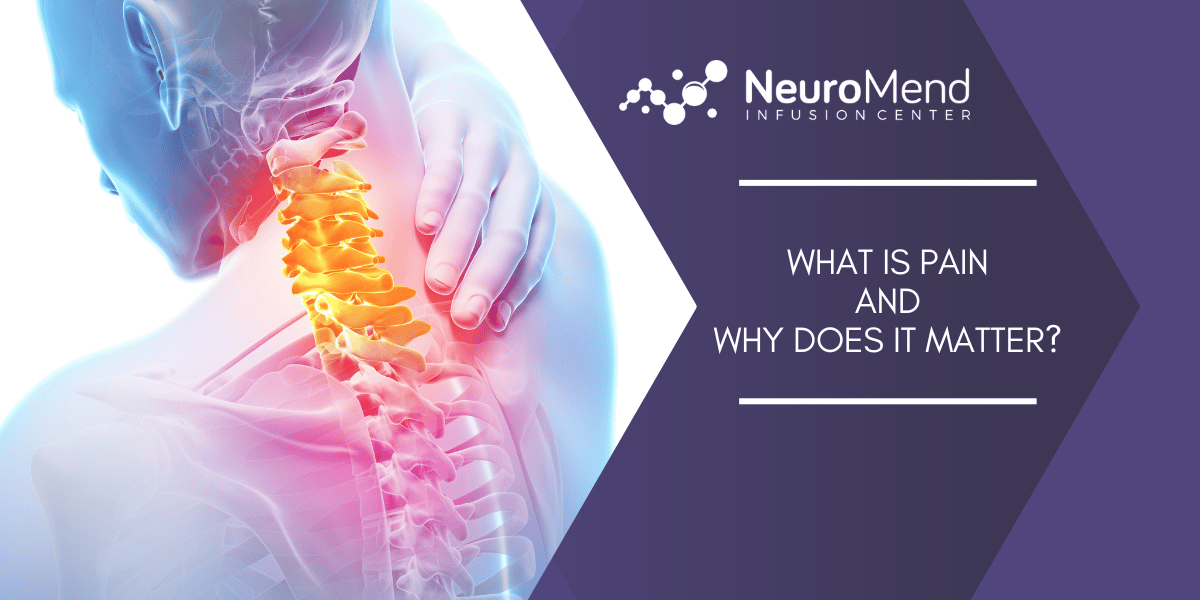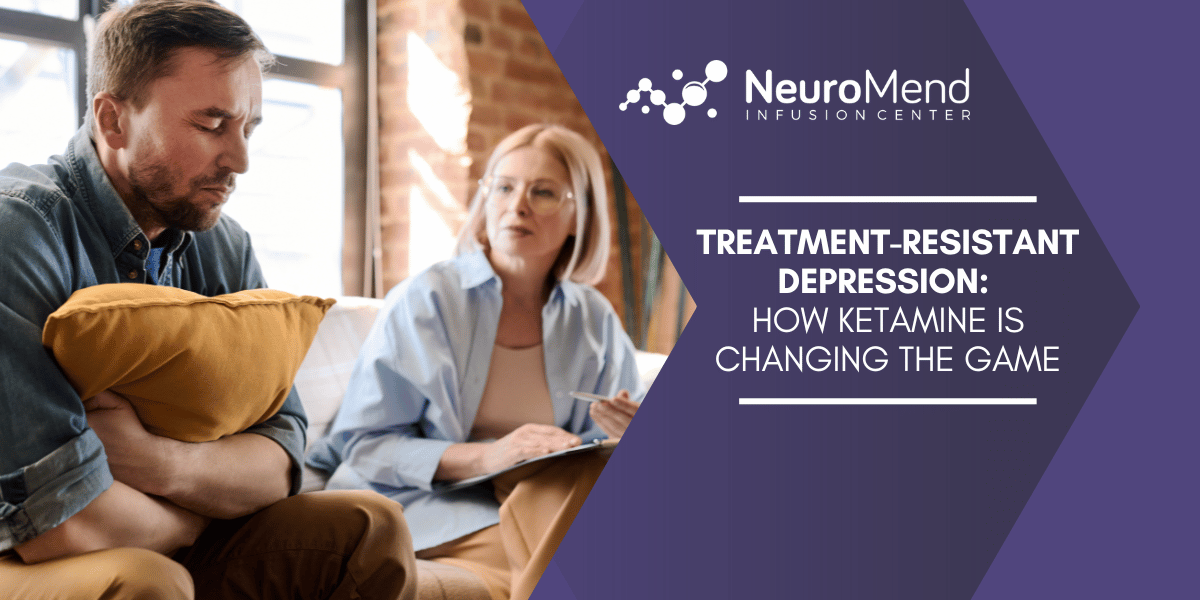
There are many different ways to use ketamine, with Ketamine-Assisted Psychotherapy (KAP) being just one of them. KAP has emerged as a popular psychiatric intervention for conditions such as anxiety, treatment-resistant depression (TRD), bipolar disorder, obsessive-compulsive disorder (OCD), and post-traumatic stress disorder (PTSD).
However, it's crucial to note that ketamine's applications extend far beyond KAP. Its unique pharmacological properties have opened doors to various therapeutic possibilities, both inside and outside the clinical setting.
Let’s dive deeper into one of its significant uses—ketamine-assisted psychotherapy—and examine the nuances of this particular therapeutic approach.
 What is Assisted Psychotherapy?
What is Assisted Psychotherapy?
Assisted psychotherapy involves the collaboration between a trained therapist and an individual seeking mental health support. Unlike traditional therapy where conversation alone is the primary mode of treatment, assisted psychotherapy incorporates adjunctive interventions or substances to enhance the therapeutic process. These adjuncts can range from mindfulness techniques to pharmacological agents like ketamine.
Types of Assisted Psychotherapies
While ketamine-assisted psychotherapy is gaining prominence, it's essential to recognize that various adjunctive interventions can enhance the therapeutic process. Here are some other types of assisted psychotherapies:
- Mindfulness-Based Approaches: Mindfulness practices such as mindfulness-based cognitive therapy (MBCT) and mindfulness-based stress reduction (MBSR), involve cultivating present-moment awareness and non-judgmental acceptance. These techniques can be integrated into not only your everyday health journey, but in psychotherapy sessions to promote emotional regulation, stress reduction, and overall well-being.
- Art Therapy: Art therapy harnesses the expressive power of art to facilitate self-exploration and emotional healing. Through painting, drawing, sculpting, or other creative modalities, individuals can access unconscious thoughts and emotions, providing valuable insights into their inner world. Art therapy can complement traditional psychotherapy by offering alternative channels for communication and expression.
- Music Therapy: Music therapy utilizes the therapeutic properties of music to address emotional, cognitive, and social needs. Whether through listening, improvisation, or songwriting, music can evoke profound emotional responses and foster connection. Music therapy can be particularly beneficial for individuals with trauma, depression, or anxiety, offering a safe and non-verbal means of processing difficult emotions.
- Animal-Assisted Therapy: Animal-assisted therapy involves interactions with trained animals, such as dogs, horses, or dolphins, to promote emotional healing and well-being. The presence of animals can reduce stress, increase feelings of comfort and safety, and enhance social engagement. Animal-assisted therapy is often used in conjunction with traditional psychotherapy to address a wide range of mental health issues, from PTSD to substance abuse disorders.
Incorporating these diverse modalities into the therapeutic toolkit expands the possibilities for personalized and holistic treatment approaches. By tailoring interventions to the individual's preferences, strengths, and therapeutic goals, assisted psychotherapies can empower individuals on their journey toward healing and self-discovery.
 Why is Ketamine Used for Assisted Psychotherapy?
Why is Ketamine Used for Assisted Psychotherapy?
Originally developed as an anesthetic, ketamine has garnered attention in recent years for its potential in treating various mental health disorders. Classified as a dissociative anesthetic, ketamine induces a trance-like state, providing pain relief and sedation. In lower doses, it can elicit profound mood-lifting effects and alter perception.
Ketamine's unique pharmacological profile makes it an intriguing candidate for assisting psychotherapy. Unlike traditional anti-depressants, which may take weeks to manifest therapeutic effects, ketamine often produces rapid and robust improvements in mood and cognition. This rapid onset of action is particularly beneficial for individuals experiencing severe or treatment-resistant depression.
Additionally, ketamine's mechanism of action differs from that of conventional antidepressants. It acts on the glutamatergic system, specifically the N-methyl-D-aspartate (NMDA) receptors, leading to synaptic plasticity and the formation of new neural connections. These neurobiological changes may underlie its antidepressant properties, offering a novel approach to treating mood disorders.
TRYING KETAMINE ASSISTED PSYCHOTHERAPY
Embarking on a journey of assisted psychotherapy, particularly with ketamine, can evoke a mix of emotions – curiosity, hope, and perhaps some apprehension. It is essential to approach this therapy with an open mind and a willingness to engage in the therapeutic process.
During a ketamine-assisted therapy session, a trained therapist guides the individual through the experience, providing support and facilitating introspection. The ketamine-induced state of consciousness may enable individuals to explore deeply ingrained patterns of thought and emotion, leading to insights and emotional breakthroughs.
It's important to note that ketamine-assisted psychotherapy is often used as an adjunctive treatment rather than a standalone intervention. It complements traditional psychotherapy modalities, enhancing their efficacy and accelerating the therapeutic process. Integrating ketamine into a comprehensive treatment plan tailored to the individual's needs can optimize outcomes and promote lasting change.
Adjunctive vs. Assisted Psychotherapy
Various approaches aim to alleviate symptoms, promote healing, and foster personal growth. Two commonly utilized approaches are adjunctive psychotherapy and assisted psychotherapy. While both strategies involve supplementary interventions, they differ in their emphasis and application:
Adjunctive Psychotherapy:
Adjunctive psychotherapy refers to the incorporation of additional therapeutic interventions alongside the primary treatment modality. These adjuncts are intended to complement and enhance the effectiveness of the main therapeutic approach, whether it be medication, psychotherapy, or both. The goal of adjunctive psychotherapy is to address specific symptoms or issues that may not be fully resolved by the primary treatment alone.
Examples of adjunctive therapies include mindfulness practices, relaxation techniques, exercise regimens, nutritional counseling, and support groups. These interventions can provide individuals with additional coping skills, emotional support, and resources to navigate their mental health challenges more effectively. Adjunctive psychotherapy is often integrated into a comprehensive treatment plan tailored to the individual's unique needs and preferences.
Assisted Psychotherapy:
Assisted psychotherapy involves the active collaboration between a trained therapist and an individual seeking mental health support. Unlike traditional psychotherapy, where conversation is the primary mode of treatment, assisted psychotherapy incorporates adjunctive interventions or substances to facilitate the therapeutic process. These adjuncts may include pharmacological agents, such as ketamine or MDMA, or alternative modalities like art therapy or music therapy.
The key distinction of assisted psychotherapy lies in the therapist's active involvement in guiding and supporting the individual through the therapeutic journey. Whether administering a medication, facilitating a therapeutic experience, or providing emotional support, the therapist plays a central role in orchestrating the therapeutic process. Assisted psychotherapy sessions are conducted in a safe, supportive environment, where the individual can explore and process their thoughts, emotions, and experiences under the therapist's guidance.
Differentiating Factors:
While both adjunctive and assisted psychotherapy involve supplementary interventions, they differ in several key aspects:
- Primary Treatment Emphasis:
- Adjunctive psychotherapy supplements the primary treatment modality, enhancing its effectiveness.
- Assisted psychotherapy integrates adjunctive interventions or substances as a central component of the therapeutic approach.
- Therapist Involvement:
- In adjunctive psychotherapy, the therapist may or may not be directly involved in administering the adjunctive interventions.
- In assisted psychotherapy, the therapist actively guides and supports the individual through the therapeutic process, often administering or overseeing the adjunctive interventions.
- Therapeutic Setting:
- Adjunctive psychotherapy interventions can be conducted in various settings, including individual therapy sessions, group therapy, or self-directed practices.
- Assisted psychotherapy sessions typically occur in a controlled environment under the supervision of a trained therapist, ensuring safety and therapeutic support throughout the experience.
By understanding the distinctions between adjunctive and assisted psychotherapy, individuals can make informed decisions about their mental health treatment options and explore approaches that resonate with their needs and preferences. Whether seeking additional support to complement existing treatment modalities or embarking on a journey of assisted psychotherapy, the ultimate goal remains the same: promoting healing, resilience, and well-being.
Neuromend and Ketamine Adjunctive Therapy
At Neuromend, we are proud to be at the forefront of ketamine IV therapy, offering innovative solutions for individuals battling treatment-resistant depression, bipolar disorder, OCD, PTSD, and other mental health conditions.
While we do not offer Ketamine-Assisted Psychotherapy (KAP) within our clinic, we focus on ketamine adjunctive therapy. Our approach focuses on using ketamine in a clinical setting while patients can pursue adjunctive therapy externally with their mental health providers.
Through our ongoing research and cutting-edge ketamine protocols, we've empowered countless patients to rediscover balance and achieve peak wellness. Contact us today to learn more about our innovative treatment options and schedule a complimentary consultation.
Disclaimer: As of September 29, 2023, NeuroMend no longer offers Spravato treatments. We apologize for any inconvenience and encourage you to consult with our team or your healthcare provider for alternative options.
ABOUT NEUROMEND INFUSION CENTER
![]() We are an Evidence-Based Center of Excellence and the leading provider of Ketamine Infusions, IV Infusions and Ketamine Consulting Services for Ketamine Clinics and IV Therapy Clinics.
We are an Evidence-Based Center of Excellence and the leading provider of Ketamine Infusions, IV Infusions and Ketamine Consulting Services for Ketamine Clinics and IV Therapy Clinics.
We Provide Effective Treatment For The Following Conditions: Major Depressive Disorders, Post-traumatic Stress Disorder (PTSD), Bipolar Depression, Obsessive Compulsive Disorder, Suicidal Ideations, Chronic Migraines, Severe Anxiety, Fibromyalgia and Chronic Pain Syndromes










